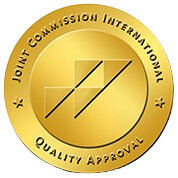Smoking is associated with a number of different diseases
Smoking and Breast Cancer
Smoking is associated with a number of different
diseases, like recurrent respiratory infections, heart disease, stroke and,
most importantly, cancer. It is often said that cigarettes are the lead cause
of preventable death in the world, but what often is not known is that smoking
can cause cancer almost anywhere in the body, including breast cancer.
It is very important to make clear that the use of the
term ‘smoking’ includes the many forms of tobacco consumption available to the
public, like cigarettes or shisha, and that secondhand smoking (also known as
‘passive smoking’) is also a risk factor. Secondhand smoking is what happens
when we inhale the smoke breathed out by other people, or the smoke that comes
out from burning tobacco products. In other words, it is very important to
avoid smoking or staying in a closed room when someone else is smoking.
According to breastcancernow.org , the younger a woman
starts smoking, higher may be the risk of developing breast cancer. The association
between smoking and developing breast cancer was higher in women with a family
history, also: in the reported study, that risk was elevated by 35%.
To avoid or quit smoking is very important not only to
prevent breast cancer, but also during the treatment of the disease: the
inflammation and immune system activation caused by tobacco is very distressful
to the body, and makes the body vulnerable in a number of ways (for example, to
certain infections). Treating cancer is already very exhausting to all of our
systems, and so smoking can increase the risk of complications that arise from
the treatment , like damage to the lungs, difficulty recovery from surgery and
higher risk of blood cloths (when taking hormonal medicines), that can also be
very dangerous.
In conclusion, smoking and secondhand smoking can
negatively affect our bodies in a number of ways, being an important risk
factor in the development of breast cancer and also being very disrupting
during treatment. The safest action is to avoid or quit smoking, if it is
already a habit. If you smoke and wish to stop, ask your doctor for guidance.
At the end your health is very important, and you have to
take care of yourself.










